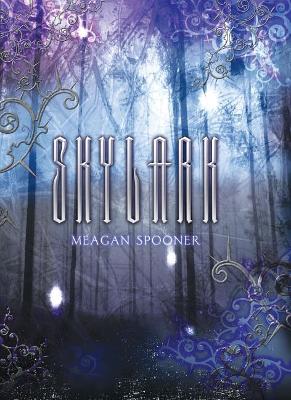Reviewed by kimbacaffeinate on
I will be honest; the beginning however fascinating was a little rough for me. Rather than laying out the world in detail, Spooner has us learning as the protagonist does. This little speed bump was soon over as I dove into the story. We meet Lark Ainsley as she makes her way through the tunnels leading to her school. She is sneaking in to see if her name has been selected for Harvest Day. Does this sound eerily familiar to the very popular Hunger Games? Fear not because that is where the similarity ends. When she is discovered by a pixie-bot, she accidently uses her magic and kills it. Use of magic is forbidden within the city. Shaken she returns home only to discover she has been selected and is quickly taken to the city's institute. Once at the institute she is scheduled for harvesting. Lark soon discovers that things aren't as they seem, and that the institute has horrific plans for her. The tale that unfolds kept me completely spellbound as Spooner took me to a world I will not soon forget.
Lark Ainsley is brave, strong willed and snarky. She faces challenges head on and questions the world before her with such believability that she came to life on the pages. Despite her fears of the unknown she moves forward in her quest. I connected with Lark and felt like I experienced every emotion with her. Oren is raw, wild at times and complex. I eventually fell for this soft spoken, sensitive, quirky young man. We learn bits and pieces of his back-story giving an air of mystery to him. I adored Nix and laughed at her comments and loved her loyalty. She holds her own rightful place in this tale and I thoroughly enjoyed her. Kris is the son of the ambassador to the institute and he helps Lark. We never really know him but this adds to the mystery. Other characters added to the tale, creating suspense. I loved that even the secondary characters felt fleshed out and added to this gripping tale.
The world-building in Skylark is absolutely breathtaking. Spooner brings us a fascinating dystopian world unlike any I have visited. With only the power of her pen she brought this world to life. As I read, I could see this world unfolding before me and instantly connected with Lark as we both met it for the first time. Spooner slowly reveals this world and provides some back history. The Institute and sealed city was interesting and how the city survived fascinated me. The world outside of the city was absolutely amazing and Spooner’s depiction held me captive. The pockets of magic, the house in the woods were brilliant. The creatures Lark encounters were terrifying. One of the things I loved about this book was the way the author took elements of steampunk, fantasy, dystopia and other genres and wove them into such a delightful, believable and original tale. It is clear she has a true understanding of these genres and successfully integrated elements of each.
Skylark completely blew my mind and I cannot wait for the next book in this series. Fans of fantasy, dystopia and magic will love this tale. Shadowlark book two in the trilogy is expected to release in 2013 and I cannot wait.
I want to thank the publisher and netGalley for providing this ARC in exchange for my unbiased review.
Reading updates
- Started reading
- 2 August, 2012: Finished reading
- 2 August, 2012: Reviewed
